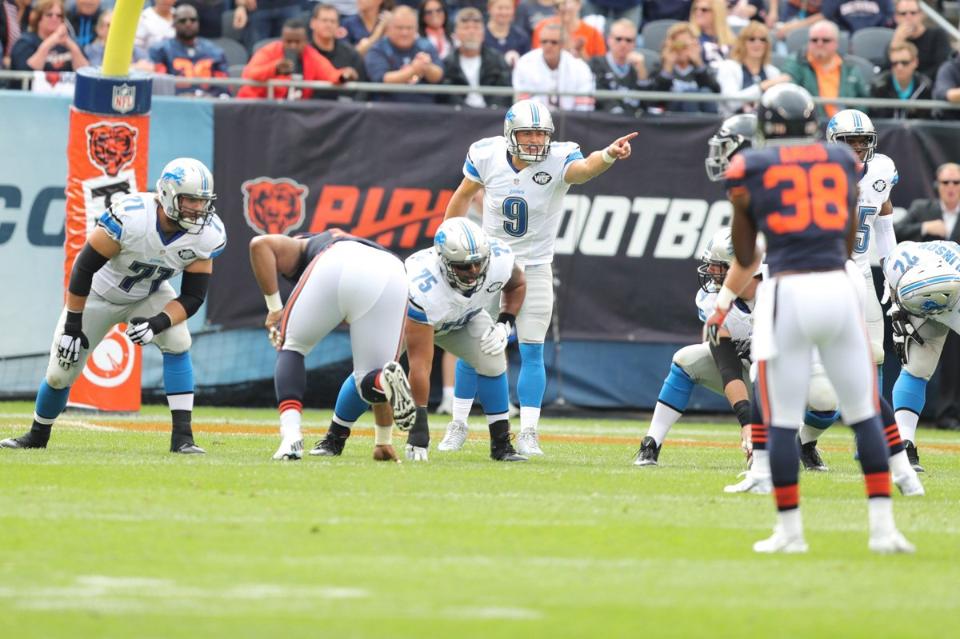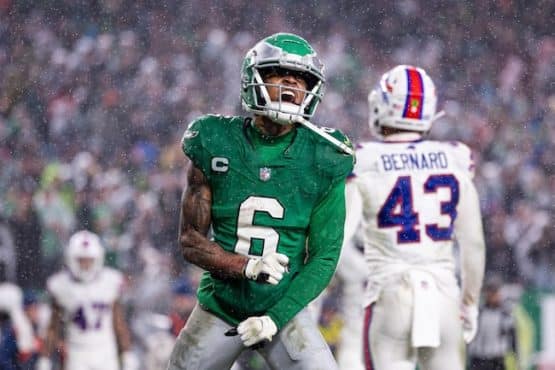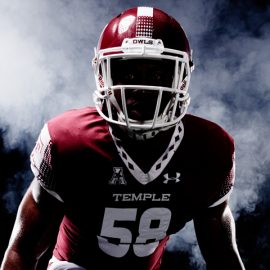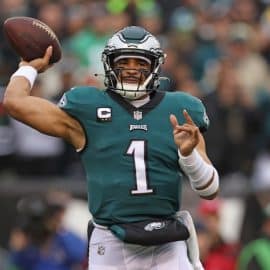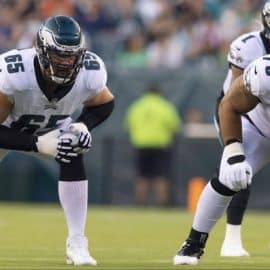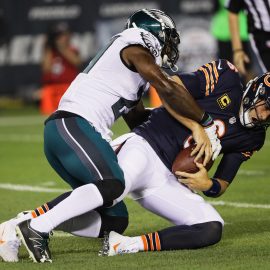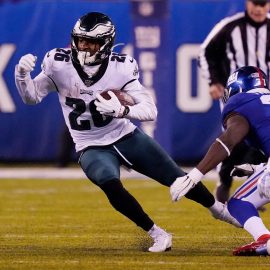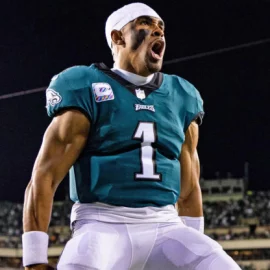I think the Detroit Lions appear to be a wounded animal, which when cornered can be quite dangerous. That’s the same approach I believe the Eagles are taking as they come off the Bye to travel to Detroit this coming weekend.
What is up with the Lions these days?
Mike O’Hara (DetroitLions.com) answers all of the burning questions following the Detroit Lions’ 17-14 loss to the Chicago Bears:

Burning questions: Lions fizzle on offense, defense giving ground, a questionable penalty and strategy to analyze in the Detroit Lions’ 17-14 loss to the Chicago Bears at Soldier Field Sunday:
Question: Considering everything that happened, what is the bottom line takeaway from the game?
Answer: It’s somewhere between shocking and predictable.
Q. Why shocking, and why predictable?
A. Shocking because the game looked like a setup for the Lions to beat a bad Bears team and make their record 2-2 as they head home for three straight games.
And it’s predictable because this scenario has been repeated too many times to be surprising.
It’s a game the Lions should have won, the same as they should have beaten Tennessee in Game 2 at Ford Field. But they didn’t win either, and now they’re 1-3 and in last place in the NFC North.
The struggle is on.
Q. The blame game: Who gets most of it, the offense or the defense?
A. Neither side played winning football, but for what this team has to do to win at this stage – and that is rely on the offense to carry most of the load – the offense has to take a bigger share of the blame.
When you don’t score a touchdown, there’s nothing to point to that says it’s not your fault.
Q. Special teams: Can’t blame them, can you?
A. Nope. It was the bright spot –Andre Roberts’ punt return TD that gave the Lions a chance at the end, two field goals by Matt Prater and another terrific performance by punterSam Martin.
That means one-third of the team played well, two-thirds didn’t. That’s not a winning equation.
Q. First-half fizzle: The offense didn’t do much in the first half, but it missed a scoring opportunity in the last minute when the Bears intercepted a pass. What happened?
A. It looked like a mixup between Matthew Stafford and wide receiver Golden Tate. On second and two at the Bears’ 22, Stafford threw the ball outside, but Tate never broke to the sideline. He kept running upfield. Based on Stafford’s immediate reaction, and how it continued on the sideline, Tate must have misread the play.
It was a costly turnover. At the least, the Lions already were well within range for Matt Prater to kick a field goal that would have cut Chicago’s lead to 7-6. And a touchdown would have given them a 10-7 lead – and the advantage of receiving the second-half kickoff.
Bottom line: they got nothing. And the way things have gone in the first quarter of the season, they cannot afford to get nothing when their opponent is doing everything possible to hand them points. And those three points – at least – had a chance to haunt them.
Q. Why run? The Lions had first and goal at the five-yard line on the first possession of the second half. They ran three times, and wound up kicking a field goal that cut the deficit to 7-6. Right calls?
A. No problem with running Theo Riddick on first down, and maybe not on second down from the one after a four-yard gain on first down. But it’s another matter on third and goal at the one – and giving Zach Zenner his first carry since early last season.
The Lions went with a power formation, including bringing in an extra offensive lineman to block. The play never had a chance. Zenner’s legs were chopped out from under him, and he lost two yards. The Lions were forced to settle for a field goal.
I’d say offensive coordinator Jim Bob Cooter out-thought himself on that one.
Q. Early flag – Interference: Middle linebacker Tahir Whitehead was flagged for pass interference when he attempted to break up a pass meant for rookie running back Jordan Howard. The Lions disputed the call. Good call by the refs?
A. I didn’t see any contact on the play until Howard touched the ball. It looked like a phantom call.
Q. Bears take advantage: The penalty gave the Bears first and goal at the four instead of having third and five at the 20 if there had been no flag. They scored on first down – a four-yard pass to Alshon Jeffery. How much did the penalty help the Bears?
A. It sure didn’t hurt them. However, the defense deserves blame for being in that situation. The Bears gained yards in big chunks, starting on first down at their 17 with a 16-yard catch by Jeffery and a 12-yard run by rookie Jordan Howard on the next play.
Jeffery later had a 12-yard catch on Nevin Lawson, who was covering him on the touchdown catch. The Bears ran nine plays, from their 17 to the Lions’ 20. They had chances to get off the field before the penalty – but that does not excuse what appeared to be a bad call.
Q. Fourth down – Bears go: The Bears went for it on fourth and one at the Lions’ 36 midway through the second quarter. A running play was stopped. Right call by the Bears?
A. Agree with the call by Bears head coach John Fox. The situation was right for them to add to their 7-0 lead. Their offense was driving, and the defense was shutting down the Lions. The other options were to punt or try a long field goal.
Q. Fourth down – Lions kick: On their next-to-last possession, the Lions had fourth and two at the Bears’ 32 and went for a field goal instead of a first down. Prater made the field goal from 50 yards. Right call?
A. My first guess was to go for the first down, but I didn’t disagree with going for the field goal – especially with Prater’s range. He seems more reliable from 50 yards than on extra points.
Enough other things went wrong to spend much time dwelling on this question.
Add The Sports Daily to your Google News Feed!
